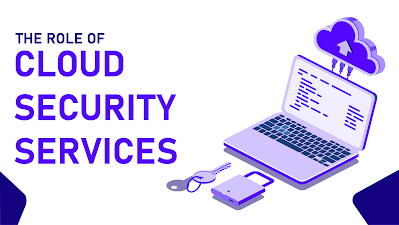As organizations increasingly adopt cloud computing for
their critical operations and data storage, ensuring robust security measures
becomes paramount. Cloud Security Services have emerged as a vital component in
safeguarding sensitive information and mitigating cyber risks. This article
explores the significance of cloud security services, their key features, and
how they contribute to establishing a secure cloud environment.
I. Understanding Cloud Security Services
1.1 Defining Cloud
Security Services: Cloud Security Services encompass a range of solutions
and practices designed to protect cloud-based assets and data from unauthorized
access, data breaches, and other cybersecurity threats. These services provide
comprehensive security measures tailored to the unique needs of cloud
environments.
1.2 The Role of Cloud
Security Service Providers (CSSPs): CSSPs are specialized providers that
offer expertise, technologies, and tools to secure cloud infrastructure,
applications, and data. They work closely with organizations to ensure the
confidentiality, integrity, and availability of cloud resources.
II. Key Components of Cloud Security Services
2.1 Identity and
Access Management (IAM): IAM solutions enable organizations to manage user
identities, access privileges, and authentication mechanisms in the cloud
environment. This ensures that only authorized individuals can access sensitive
data and resources.
2.2 Data Encryption
and Privacy: Encryption techniques are employed to protect data at rest and
in transit within the cloud. CSSPs implement robust encryption protocols and
mechanisms to safeguard sensitive information from unauthorized disclosure or
tampering.
2.3 Threat Detection
and Monitoring: Advanced security tools and technologies are utilized to
detect and mitigate potential threats within the cloud environment. This
includes real-time monitoring, anomaly detection, and threat intelligence
analysis to identify and respond to security incidents promptly.
2.4 Compliance and
Governance: CSSPs help organizations adhere to regulatory compliance requirements
and industry best practices. They assist in implementing necessary controls,
conducting audits, and ensuring cloud deployments meet the necessary security
standards.
III. Advantages of Cloud Security Services
3.1 Enhanced Cloud
Security Expertise: CSSPs possess extensive knowledge and experience in
securing cloud environments. They keep up-to-date with the latest threats,
vulnerabilities, and security practices, ensuring that organizations can
leverage their specialized expertise.
3.2 Proactive Threat
Mitigation: Cloud Security Services provide proactive monitoring and threat
detection capabilities, enabling organizations to identify and respond to
potential security incidents in real-time. This reduces the risk of data
breaches, service disruptions, and unauthorized access to cloud resources.
3.3 Scalability and
Flexibility: CSSPs offer scalable security solutions that align with
organizations' evolving cloud requirements. Whether scaling up or down,
organizations can adapt their cloud security measures to accommodate growth and
changing needs.
3.4 Cost-Efficiency:
Engaging CSSPs eliminates the need for organizations to invest heavily in
developing in-house cloud security capabilities. CSSPs provide cost-effective
solutions that leverage economies of scale and expertise, allowing
organizations to optimize their security investments.
Conclusion:
Cloud Security Services are indispensable in securing cloud
environments and protecting sensitive data from ever-evolving cyber threats. By
partnering with experienced Cloud Security Service Providers, organizations can
benefit from enhanced expertise, proactive threat detection, and scalable
security solutions. Embracing Cloud Security Services ensures the
confidentiality, integrity, and availability of cloud resources, enabling
organizations to leverage the full potential of cloud computing with
confidence.
